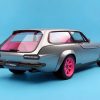 Prime Minister Trudeau has been tarnished by accusations of hypocrisy as well as lack of results. Photo: Sean Gallup/Getty Images Europe Canadians have completely fallen out of love with Trudeau. Brilliance came from a career that at times seemed to defy political seriousness. Instead of Trudomania, the nation is suffering from Trudeau fatigue.
Prime Minister Trudeau has been tarnished by accusations of hypocrisy as well as lack of results. Photo: Sean Gallup/Getty Images Europe Canadians have completely fallen out of love with Trudeau. Brilliance came from a career that at times seemed to defy political seriousness. Instead of Trudomania, the nation is suffering from Trudeau fatigue.
The liberal prime minister's approval ratings have fallen below 30% among voters aged 18 to 34, according to the Angus Reid Institute's national sociology group. This is the group whose enthusiasm helped Trudeau get elected in 2015, re-elected in 2019 and again — almost — in 2021.
Voting intentions say the same, with a widening gap between the ruling Liberals and conservative opposition. The disappointment was driven by economic factors, including soaring interest rates and a housing crisis.
From a British perspective, things in Canada might not seem so bad. Inflation is less than half the UK level and there are no major public sector strikes, NHS waiting lists or small boats. But Canada has its own problems.
Mortgage costs for the average Canadian home are now eating into 60% of average income, according to the National Bank. This figure is 90% in Toronto and over 100% in Vancouver. For the first buyers, prices are simply unaffordable. Their rage is centered on the man they have trusted with their votes, not once, but three times.
Under Trudeau, the Liberal Party is 10 points behind the Conservatives in the polls.
Conservative leader Pierre Poilivre is popular but not a populist, younger than the prime minister but without baggage. He proposes a modernizing, moderately libertarian agenda, a move away from liberals' great governmental profligacy and financial intemperance. For the first time in eight years, Trudeau faces a dangerous opponent.
 Pierre Poilievre and his wife Anaida: The conservative leader offers an increasingly attractive alternative to Trudeau's liberalism. Credit: BLAIR GABLE/REUTERS
Pierre Poilievre and his wife Anaida: The conservative leader offers an increasingly attractive alternative to Trudeau's liberalism. Credit: BLAIR GABLE/REUTERS
Canadian voters have been unhappy with their prime minister for some time now. The cult of personality surrounding Trudeau, which he diligently cultivated on social media, became a bad joke when historical blackface photos of the future prime minister surfaced in 2019.
Suddenly, his wit turned to hypocrisy and his admiration for «Social Justice Justin» was replaced by derision.
This summer, Trudeau's image as a Canadian family man was also dealt a blow when news broke that the prime minister and his charming wife Sophie Gregoire Trudeau broke up. Periodic absence of the former TV presenter next to him at international summits was noticed.
While this is a deeply personal matter, it has also become political due to how publicly the couple has spoken about their relationship. Trudeau posed for and interviewed Vogue shortly after Justin was elected prime minister, capturing the couple in a close embrace and describing their first date. This helped solidify the couple's public image as a modern and open family — the face of Canada that many wanted to believe in.
Growing frustration
Now that economic troubles are mounting and the public image is deteriorating, Trudeau faces an uphill battle to win back voters. who fell out of love with him.
Born for politics
Eight years ago everything seemed so different. Justin Trudeau took office at the age of just 43, becoming the second youngest prime minister in his country's history and the descendant of the most famous family.
Justin Trudeau's implicit promise was to recreate the golden era of liberalism since 1968 to 1984, when his father Pierre dominated Canadian politics.
Trudeau Sr., who put the country on the map of the world, is fondly remembered by most older people for his social reforms. He legalized homosexuality and abortion, liberalized divorce, and abolished the death penalty.
After General de Gaulle stirred up French-speaking Canadians in 1967 with his rallying slogan in Montreal, «Vive le Québéc libre» («Long live a free Quebec ”), Pierre Trudeau managed to kill Quebec separatism with kindness, turning Canada into a bilingual society. Perhaps this was his greatest achievement.
Of the political dynasties Trudeau are unique. Imagine the impact on the United States of a family that combines the fame of the Kennedys and the charisma of the Clintons in one person.
Justin shared his father's good looks and charm, if not the same intelligence and honesty. He introduced himself as Canada's first «post-national» prime minister. Workmania has returned with a vengeance.
However, dynasties are often disappointing. Justin Trudeau did not succeed either for the younger generation, who saw him as a standard bearer of liberal values, or for the middle-aged voters, who recall with nostalgia the turbulent days of his father's reforms. that while Pierre Trudeau was the most popular candidate for Canada's best prime minister in modern times, Justin was widely regarded as the worst.
Lagging behind the opposition,
If the elder Trudeau promised to elevate Canada into a Justice Society, his son sought to remake it in his own image, the Justin Society. But Canadians are not a fan club and the emperor of the cool turns out to be naked. Despite loud statements on social issues, the young Trudeau seems to prefer symbolism to content.
Many of Trudeau's policies reflect his centre-left views on the economy, but often have a connotation of protectionism. For example, under a law passed in 2022, non-Canadians are prohibited from buying residential property unless they themselves are permanent residents. There is little evidence that this law will help reduce the housing shortage, as the Trudeau government claims, but it certainly sent a message to foreign investors: stay away from Canada.
The same applies to Trudeau's environmental policy. He wants to phase out the oil and gas industry, thereby gutting Alberta's economy, and impose a draconian carbon tax that will stifle economic growth across the board.
Increasing the cost of borrowing
The country lacks an entrepreneurial culture: there was only one Canadian firm in a recent Financial Times list of the world's top 100 companies. Unlike its larger neighbor to the south, Canada lags behind on most measures. This is despite Trudeau's emphasis on mass immigration. Indeed, some critics have suggested that his only strategy for economic growth is to increase the population by importing more «people,» a term he coined that drew much derision.
In the case of Ukraine he was so interested in recruiting people displaced by the Russian invasion that his officials issued many more visas than refugees wishing to move to Canada. Five out of six Ukrainians who received Canadian visas decided to go elsewhere — less than 150,000 out of 650,000.
Despite this, the population has just passed the symbolic mark of 40 million and is set to increase by another 1.5 million by 2025. After Russia, Canada has the second largest land area in the world, so there seems to be plenty of room for expansion.
The arrival of millions of workers is good news for Trudeau, who boasts of his country's economic growth records.
During the pandemic, Canada's economy did not shrink as much as other G7 countries, shrinking by 5.1% in 2020 compared to 11% in the UK and 6.1% in the Eurozone.
However, looking ahead, the International Monetary Fund expects Canada's growth to slow, dropping below an average growth rate of 1.9 percent over the decade to 2014 to 1.7 percent in 2028.In this light Canada's immigration policy is a cynical gamble that has been described as «human quantitative easing.» Last year, its population increased by 700,000 people, which is only 200,000 people less than in the United States, which has eight times the population.
For ordinary Canadians, GDP per capita is important, and it saw little to no per capita growth during his reign.
The Housing Crisis
In major cities such as Toronto, Vancouver, Ottawa and Montreal, housing prices are unaffordable high for those who are not yet on the property ladder. The median price of a house in Canada is CAD 754,800 (£440,000), more than 11 times the median household income after taxes.
The housing market is one of the most inaccessible in the world, and rental fees continue to rise.
Now Trudeau is trying to shift the blame for the housing crisis to the provinces and territories, arguing that «housing is not the primary responsibility of the federal government.» You can't fool anyone.
Empty reform
Trudeau began his reform agenda by legalizing «recreational» cannabis, making Canada the first G7 country and only the second country in the world to do so. The cannabis law was popular among its supporters, but legal marijuana failed to eliminate drugs from the black market — in fact, it was much more expensive, and investors in the marijuana business were losing money.
Now Vancouver has gone even further by decriminalizing the possession of hard drugs such as cocaine, heroin or fentanyl. Will drug normalization improve the quality of urban life in Canada? It is too early to say, but this policy is unlikely to have been a resounding success.
Trudeau's voluntary reforms in the area of euthanasia, the amendments to the Criminal Code «Medical care at death» were made in response to the Supreme Court ruling, but cause even more controversy. There is widespread concern that medical authorities offer assisted suicide to disabled, depressed and other vulnerable people. The annual number of deaths from euthanasia is growing rapidly and exceeded 10,000 in 2021.
Human rights groups argue that Canada's permissive law does not provide the necessary safeguards for patients who may not have medical conditions other than a disability. Uniquely, the law allows nurses as well as doctors to prescribe euthanasia.
Tim Stainton, director of the Canadian Institute for Integration and Citizenship at the University of British Columbia, says Trudeau's reform is «probably the biggest existential threat to people with disabilities.» since the Nazi program in Germany in the 1930s.”
Equally troubling were reports of people on welfare being offered euthanasia as a solution to their problems. As in other countries, the Covid pandemic has exacerbated mental health problems in Canada as vast numbers of people slide into poverty.
A heated debate about euthanasia has tarnished Trudeau's claim that he is Canada's greatest reformer. human rights since the time of his father. During a visit to this predominantly Catholic country, Pope Francis denounced the inhumane treatment of «patients who are credited with death instead of love.»
 Trudeau, who calls himself a «cultural Catholic», and his wife at a private audience with Pope Francis in the Vatican, 2017. Credit: POOL New/REUTERS. despises his religion, indulging others. When some 30 churches were burned down by left-wing activists in response to claims that mass graves of indigenous schoolchildren had been found, Trudeau was accused of doing nothing to protect Catholic communities.
Trudeau, who calls himself a «cultural Catholic», and his wife at a private audience with Pope Francis in the Vatican, 2017. Credit: POOL New/REUTERS. despises his religion, indulging others. When some 30 churches were burned down by left-wing activists in response to claims that mass graves of indigenous schoolchildren had been found, Trudeau was accused of doing nothing to protect Catholic communities.
Instead, he's buying into the darkest look at Canada's colonial history: not just a racist past, but genocide. He argues that «Canada has no core identity» and thus absurdizes his father's elaborate cultural pluralism.
Always striving to be better than you, on his Twitter feed, the prime minister adds «2S» in front of the usual LGBTQ litany… This acronym means «two spirits» and refers to the tiny minority of indigenous people who do not identify with either men , not with women, but with the spirits of both.
Just in case anyone has any doubts, Trudeau said at this year's Liberal Party conference that «transgender women are women.» He supported the participation of trans athletes in women's sports and their access to women-only venues.
While Trudeau has been keen to assert his progressive credentials on «soft» issues regarding culture and identity, he has proved much less able to handle real-life crises.
The way the prime minister handled the convoy of freedom of truckers protesting pandemic-related restrictions in January and February 2022 shows his struggle under pressure.
Among those who gathered in the capital Ottawa, some of the protesters were far-right extremists brandishing Nazis. symbols and flags of the Confederation; many were anti-vaccine; and some resorted to violence. Some 64% of Canadians saw truckers as a threat to democracy.
However, 46% shared at least some of truckers' views on lockdowns, mandatory vaccines or masks. Among young people aged 18 to 34, this figure was 61%. against truckers freedom. Photo: Kadri Mohamed/EPA-EFE/Shutterstock
Trudeau has been criticized by some for acting too slowly and «hiding» from the spotlight, while others have criticized his refusal to engage with legitimate opposition and argued that the government's measures were too harsh.
In the end, the Prime Minister decided to take tough action, first applying the Emergency Act of 1988. The law originated during the two world wars and gives the government wide powers over public order in a time of present crisis. Hundreds of truckers were arrested and many were put on trial.
When Conservative MP Melissa Lantsmann objected to his use of the Emergency Act, Trudeau's response was muted. How, he asked, could she and her party «stand next to people waving swastikas»? The prime minister's implicit mention of the fact that Ms. Lanzmann is Jewish and should therefore be ashamed of herself was not well received by Canadian Jews.
The truth is that as the truck drivers approached Parliament and the seat of government in Ottawa, Trudeau panicked. The protesters were dispersed — but the mask fell off. This is the prime minister who does not tolerate dissent; who divides the country into awakened sheep and fascist goats; who called an election during the pandemic to temporarily shore up his position, but now finds himself deeply unpopular.
Weak international reputation
Where can such a leader go? Perhaps abroad, in the hope of distraction. But Trudeau's position on the international stage is hardly better than at home.
In February 2022, Canada was quick to offer assistance to Ukraine. About 4 percent of its population are Ukrainians: 1.36 million even before the war. Yet despite leading the world's largest Ukrainian expatriate population, Trudeau has made little difference to their tormented homeland.
Even if humanitarian and financial aid is included, Canada has pledged a smaller share of GDP than any major NATO ally except France. Trudeau visited Kiev last June to promise more military aid, but if and when it is delivered, Canada will rank well below the US, UK, Germany and Poland.
Canada's defense budget was the equivalent of 1.22 % of its economy in 2022. This is lower than in Germany and slightly higher than in Slovenia, according to NATO.
Defense spending is expected to be around C$36.7bn (£21bn) this year, or 1.29% of GDP. The truth is that Canada, despite its strategic importance, vast geographic size and unusually long coastline, spends far less than the 2 percent minimum required by NATO on defense. Under US protection for the past eight years, Trudeau sees no reason to increase military spending at the expense of his pet projects. So there are few stocks of equipment and other military equipment for Ukraine.
 Trudeau has promised more military aid to Ukraine, but Canada will still be well below the support provided by the US, UK, Germany and Poland. Photo: TOMS CALNINS/EPA-EFE/Shutterstock
Trudeau has promised more military aid to Ukraine, but Canada will still be well below the support provided by the US, UK, Germany and Poland. Photo: TOMS CALNINS/EPA-EFE/Shutterstock
As a result, Canada is somewhat isolated within NATO. Although Canada remains a member of the Five Eyes intelligence-sharing group, it was not included in the Aukus defense agreement between the US, UK and Australia. The exclusion of Canada from this cornerstone of the Anglosphere's security architecture has contributed to a reassessment of values in Ottawa.
The same is true for the environment. Trudeau talks a lot about net zero, but in 2023, before his eyes, Canada experienced the worst wildfires in human history — about 4% of the country's forests burned down. The toxic smoke from these fires has caused hazy skies even in Europe, and carbon emissions have also reached a record high of 160 megatons in six months.
Naturally, Trudeau blames climate change for this, but he ignored warnings of mismanagement of the forests and refused to allocate the necessary resources.
Seasoned Trudeau observers notice a pattern of behavior: extravagant rhetoric followed by periodic bursts of hyperactivity. However, solid achievements are spoiled by short attention spans, unwillingness to confront opposition or see things through.
A prime example is a monarchy. Trudeau's younger supporters would like him to hold a referendum on the creation of the Republic of Canada. Polls show that a majority of voters would support replacing the constitutional monarchy with an elected president, although only the separatist Bloc Québec actually proposed and voted for abolition in parliament.
After the funeral of the late queen and the coronation of King Charles III, Trudeau sluggishly supported «sustainability» institutions. At the same time, he subtly undermined it by suggesting a redesign of the crown that appears on banknotes and other official documents.
The new crown appears innocuous enough, with Canadian maple leaves instead of the Anglo-French fleur-de-lis, and wavy blue lines reminiscent of the country's maritime past. But the arrows on the ermine base are upside down and point to the left instead of the right. The Maltese cross that traditionally adorned the crown has been replaced with a stylized snowflake, symbolizing Canada's arctic climate and paying homage to the indigenous peoples.
The choice of the snowflake suggests a failure of humor of epic proportions. Didn't anyone in Trudeau's entourage dare to say, “Mr. Prime Minister, snowflake? Really?”
So, the Christian symbol of self-sacrifice was supplanted by the religion of ecology with a consecrated snowflake smiley face to proclaim the political correctness of the new secular order. Trudeau loves such political gestures, but a bolder leader would take the opportunity of the Queen's death to reopen the constitutional debate. Trudeau would no doubt want to imprint his personality on Canadian history, as his father did when he abolished the monarchy.
However, unlike Pierre, Justin is too timid — in fact, he is a bit of a snowflake. Instead of a republic, Trudeau the Younger will leave a weak share of heraldic art as a legacy.
There are also family matters. The collapse of their marriage broke Trudeau's spell. Together, Justin and Sophie were more than the sum of their parts; without it, he looks smaller, empty, and tired.
 The couple's divorce is likely to hurt Trudeau's public image. Credit: BLAIR GABLE/REUTERS Hamlet Complex
The couple's divorce is likely to hurt Trudeau's public image. Credit: BLAIR GABLE/REUTERS Hamlet Complex
Trudeau faces a tough fight to win a fourth term in the next election, due in 2025 or sooner. There has been much speculation that Mark Carney, still only 58 years old, might offer himself as a reliable partner, despite the fact that the former Governor of the Bank of England ruled himself out last May.
A Globe and Mail poll last month showed that 53 percent of the population would like to see a new leader lead the Liberals in the next election. Even of those who normally vote Liberal, less than half (42%) support Trudeau as party leader.
His unwavering sense of entitlement means Trudeau's chances cannot be discounted. After eight years in office, his father was also unpopular, but it turned out he still had eight years ahead of him. Justin will almost certainly not be able to match Trudeau Sr.'s tenure, but that won't stop him from trying.
It's the need to equal or surpass his father that drives Justin Trudeau's Hamlet ambition. However, his time in office has shown that there is little behind these ambitions.
Trudeau clings to his post in pursuit of a chimera — the post-national fate of proud people who tire of their identity. — managed policy. Canadians are emphatically not a nation of snowflakes, no matter what the prime minister may think.


























































Свежие комментарии